whatevermort
Member
So far, this is tremendous (and I am somewhat surprised, as his work hasn't quite been stellar for me for a while now);
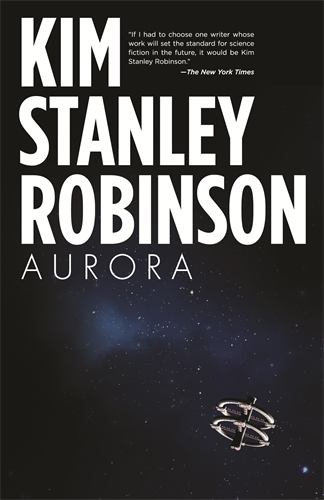


The individual volumes of Book of the New Sun are not long. And it's ok to break between them, though I wouldn't wait too long as they are tightly intertwined.
Those are the ones I've read. All are worth your time for sure. cmon dresden.checked my kindle to see what i had bought but never finished (or started):
fiction:
The Sisters Brothers, Patrick DeWitt
spec fic:
Ancillary Justice, Ann Leckie
Annihilation, Jeff VanderMeer
4 kidz:
Steelheart, Brandon Sanderson
---
one day i will finish these.
Would you say reading a book in between each volume would be fine?
Not to wave you off, Cyan, but Mumei would be better equipped to answer this question: how would I enjoy the writing style here, knowing my taste in proses?
Dresden, read Americanah. I love that book, and I consider it an important piece of literature.


checked my kindle to see what i had bought but never finished (or started):
fiction:
Americanah, Chimamanda Ngozi Adichie
Bombay Stories, Saadat Hasan Manto
The Love of a Good Woman, Alice Munro
Night and Day, Virginia Woolf
The Sisters Brothers, Patrick DeWitt
The View from Castle Rock, Alice Munro
The Wake, Paul Kingsnorth
Collected Stories, Lydia Davis
The People in the Trees, Hanya Yanagihara
My Struggle, v1, Karl Ove Knausgaard
American Pastoral, Philip Roth
nonfiction:
The Astral Plane, Its Scenery, Inhabitants and Phenomena (I think I got this because it popped up as free on amazon)
The Poet's Glossary, Edward Hirsch
Now It Can Be Told, Philip Gibbs
spec fic:
Ancillary Justice, Ann Leckie
Annihilation, Jeff VanderMeer
The Tyrant's Law, Daniel Abraham
Fledgling, Octavia E Butler
City of Stairs, Robert Jackson Bennett
Tide of Shadows, Aidan Moher
4 kidz:
Noggin, John Corey Whaley
Where Things Come Back, John Corey Whaley
The Girl Who Circumnavigated Fairyland in a Ship of Her Own Making, Cat Valente
Steelheart, Brandon Sanderson
---
one day i will finish these.
I tried for the second time to get into this one:

Light, by M John Harrison.
I had to abandon it about 25% through. It just... didn't click at all for me. I almost don't know how to describe what was wrong with it. Everything about the characters and setting was so strange that I couldn't get any sort of baseline for what was normal or where things were going. It presented an extremely alien future but didn't explain anything. I enjoy weird sci-fi (Philip K Dick is one of my favorite authors, for example), but something about this was just too much. I very rarely give up on a book, but I don't think I'm going back to this one.
]
Gibraltar Earth, by Michael McCollum (book 1 of the Gibraltar Trilogy).
This book has been brilliant so far. It presents an interesting and unique variant on the old trope of first contact with alien life. I'm about halfway through this book and I'm fairly certain I'll have to do books 2 and 3 immediately after.
It is possible I already had some presentiment of my future. The locked and rusted gate that stood before us, with wisps of river fog threading its spikes like the mountain paths, remains in my mind now as the symbol of my exile. That is why I have begun this account of it with the aftermath of our swim, in which I, the torturer's apprentice Severian, had so nearly drowned.
~
Still wet from Gyoll we waited. In the recesses of my mind we stand shivering there even now. Just as all that appears imperishable tends toward its own destruction, those moments that at the time seem the most fleeting recreate themselves - not only in my memory (which in the final accounting loses nothing) but in the throbbing of my heart and the prickling of my hair, making themselves new just as our Commonwealth reconstitutes itself each morning in the shrill tones of its own clarions.
~
We believe that we invent symbols. The truth is that they invent us; we are their creatures, shaped by their hard, defining edges. When soldiers take their oath they are given a coin, an asimi stamped with the profile of the Autarch. Their acceptance of that coin is their acceptance of the special duties and burdens of military lifethey are soldiers from that moment, though they may know nothing of the management of arms. I did not know that then, but it is a profound mistake to believe that we must know of such things to be influenced by them, and in fact to believe so is to believe in the most debased and superstitious kind of magic. The would-be sorcerer alone has faith in the efficacy of pure knowledge; rational people know that things act of themselves or not at all.
Three paragraphs from early on in the first book . You tell me.
Yes. Dresden, read it!
Why doess the book print look like it was done with microsoft word art?
Report back on this. I'm always interested in different approaches. I have a buddy who when to his academy in Florida; he can hit the piss out of the ball, but he sprays it everywhere...
Speaking of alternate swings, there's a guy on the Champions tour who never takes anywhere near even a 3/4 swing, and he competes, so there's no one right way to do it...
I like the swing, it's a very simplified approach and it suits me as a slicer. I have been trying it out for a couple weeks based on the videos over at Golf Digest. I've really only implemented the backswing portion of it, which is a more direct up and down as opposed to the traditional arc, and you keep your wrists closed longer. It's worked wonder for my slice using just that portion, however it cost a ton of distance because I'm not really implementing the coinciding lower body stuff.
Either way, it's been super easy to understand and put into practice. It's short, has a number of exercises for building muscle memory (which is the sole reason I bought the book, for the routine) and is diagram heavy.
I tried for the second time to get into this one:

Light, by M John Harrison.
I had to abandon it about 25% through. It just... didn't click at all for me. I almost don't know how to describe what was wrong with it. Everything about the characters and setting was so strange that I couldn't get any sort of baseline for what was normal or where things were going. It presented an extremely alien future but didn't explain anything. I enjoy weird sci-fi (Philip K Dick is one of my favorite authors, for example), but something about this was just too much. I very rarely give up on a book, but I don't think I'm going back to this one.
Is there a definitive historical or biographical book of the Regan years? I want to see how his presidency impacted America after seeing that thread about him in OT.
Also 1/4th into Mockingbird. Very accessible and a solid writing style. I see how people love this book.

Is there a definitive historical or biographical book of the Regan years? I want to see how his presidency impacted America after seeing that thread about him in OT.
Also 1/4th into Mockingbird. Very accessible and a solid writing style. I see how people love this book.
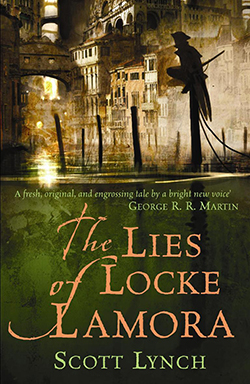
Well get on it! You can whip through those books in no time. And how about my question about the slave book you read sometime last year? It was an examination of the slave trade and America. For the life of me, I can't remember its name but I want to give it a go since I only have books to give me love now.
I don't know about the slave trade. I read several books about slavery, though - the two big ones were The Half Has Never Been Told: Slavery and the Making of American Capitalism by Edward E. Baptist and American Slavery, American Freedom by Edmund S. Morgan.
Found this at a used book store for $7, so I figured it was a good time to buy it.
Good luck. I get angry thinking about how hard that book is to get through...nothing exciting happens for like 300 pages.
The Half That Has Never Been Told is the one I was trying to remember. That'll be my next non-fiction when I wrap up my current reads. Went ahead and placed a hold on it, so the moment that opens up, I'll gobble it up. Since I moved to South Africa,I have found racially focused books has become one of my literary niches.
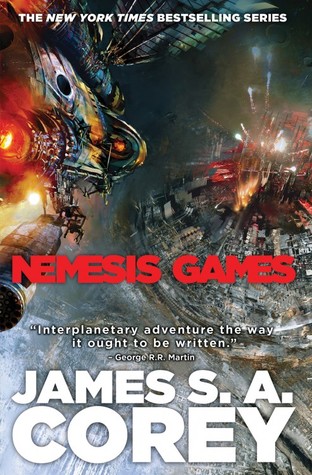

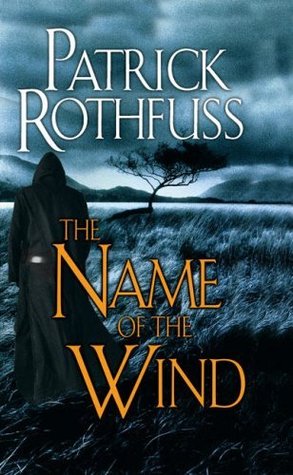






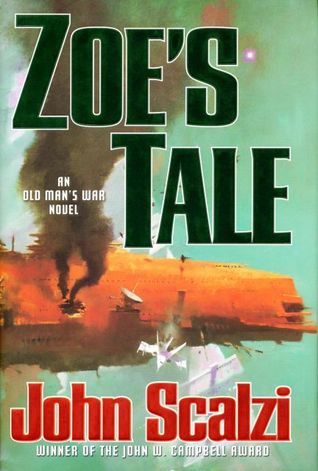



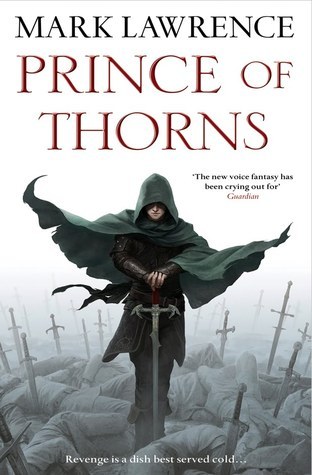

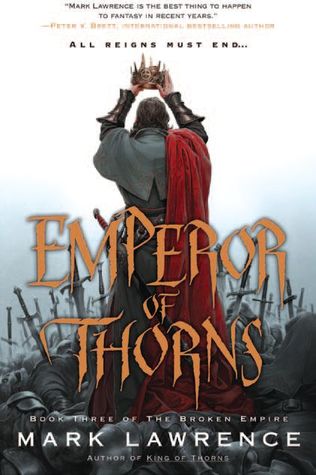



That is a really good book.
However, after learning more about perception and memory I think some of his evidence is pretty suspect. I still think he makes a good case with his more data driven evidence, but I would take his 50 year old recollection evidence with a grain of salt because there is no way in hell that is 100% accurate considering that our perception is constructed and our memory is also constructed. Moreover, every time a memory is accessed it is re-constructed again.
I disagree, and I think you're making a jump too far. For one, a lot of his evidence is contemporaneous; Charles Ball's account, which frames much of the book, was published in 1837. And while there is evidence that comes from the WPA slave narratives, which were published decades hence, there were thousands upon thousands of slave narratives published during the 18th and 19th centuries that were used as sources. It's not like these sources are taken entirely at face value, either; the thousands upon thousands of pages of records that slaveholders kept (including measures of productivity and lashings) corroborate those narratives that we have. And even in the case of the WPA slave narratives, it's worth noting that there's a difference between using, say, one person's account of their experiences and using the reports of a multitude of people. It's certain that their recollections were not totally accurate, but it's unlikely that their inaccuracies would all tend in the same direction.
You should watch this interview with Edward Baptist and Douglas Blackmon (who wrote Slavery By Another Name). There's a lot of interesting stuff, and Baptist also mentions that it wasn't just slaves who recalled these experiences of slavery, but observers as well. And he mentions that the scene portrayed in Twelve Years A Slave (based on an 1853 slave narrative) where there is an accounting of productivity, which he says was in every single slave narrative published in the 19th century written in the cotton South. This part in particular is relevant to this discussion.
It suddenly struck me that perhaps you've misremembered just how voluminous the evidence is!
Edit: There is an amazing quote that Blackmon pulls out at ~48:50.
The WPA slave narratives are what I really only have an issue with. I would disagree that thousands and thousands of narratives reduce the issue of recollection inaccuracy. I think you can simply take that as a shared narrative developed in a community and then using that shared narrative to unconsciously reconstruct your own memories and recollections. A shared narrative of a group does not make those memories more accurate. There have been memory studies done on 9/11 and other shared memories and they all suffer from memory issues and inaccuracies
I honestly did not thoroughly investigate his sources while I was reading it, but if he used those WPA narrative accounts in conjunction with more reliable sources then I wouldnt have an issue with it. If he used it on its own without any corroboration then I think that is a issue.
I probably should have said it more clearly, but I was pretty much warning him to look out for that because I wish I did when I was reading it. I still think he proves his point, still think the book is great and still uses a lot of convincing evidence, but I think that any account that is years after the fact is simply not reliable.
Ill check out the links though, thanks
When you've had a chance, get back to me. I think a lot of the points you're making are addressed there, and though you bring up legitimate concerns I don't think your response to those concerns makes sense.
Gradually we have moved from a video camera conception of memory to a reconstructionist view. Memory does not passively record facts and file them away; rather the process is a creative amalgamation of fact and fantasy. It is an interpretive construction that cannot be absolutely verified without external corroborating evidence. Memory moves from short term to long term storage in a process called consolidation. If consolidation does not take place then the experience will be forgotten when it leaves short term memory. But even if memories reach long term storage with little distortion there is no guarantee that it will remain that way. Memories naturally decay over time. The more time that has passed since an experience has been recalled the more likely that distortion or forgetting has occurred. This might be a major cause of childhood amnesia; children rarely remember anything before the age of three probably because they cannot rehearse or discuss memories which causes them to decay and disappear. Even with frequent recall and retelling, however, there are no guarantees. As we recall a memory we focus on some aspects and ignore others; over time this can change the memory because the disregarded aspects are weakened or lost. Gradual repetition and rehearsal of slightly different versions of the memory alter it without our awareness, creating distorted memories. No recall is like the previous recall. Experimental psychologist Frederic Bartlett first made this point in his landmark 1932 text, Remembering: A Study in Experimental and Social Psychology. “Some widely held views have to be completely discarded,” he wrote, “and none more completely than that which treats recall as the re-excitement in some way of fixed and changeless ‘traces.’” To the contrary, he believed that remembering is “an imaginative reconstruction, or construction, built out of the relation of our attitude toward a whole active mass of organized past reactions or experience.” (Bartlett, 1932)
Memories are often contaminated or distorted by information acquired after an event. This so called post-event-information can come from suggestions or facts that are unconsciously integrated into the original memories. Once this is done the memories form a cohesive story that is impossible to separate into its true and false components. Dr. Elizabeth Loftus describes in her book The Myth of Repressed Memory experiments in which subjects were exposed to a film of a bank robbery followed by a television account of the event that contained erroneous details. Many of the subjects incorporated the incorrect details into their memory of the robbery and steadfastly refused to believe that they could be wrong. Loftus has performed hundreds of similar experiments with thousands of people and claims that post event information has been clearly shown to have an influence on memories (Loftus, 1996). As a practical application of this information, police officers should never show a single suspect’s photo to the victim of a crime. If this individual is then picked out of a line up, it would be difficult to determine if the victim is remembering the assailant or the person in the photograph.
Emotions can have an effect in creating and recalling memories. Emotions felt as we recall an event can reshape memories, imbuing them with our current emotional state even though the original memory had no trace of the emotion. This is the opposite of attempting to lift your mood by remembering pleasant past experiences. Intense emotional reactions to memories do not necessarily mean that they are accurate, it just means that there is a greater likelihood that we will perceive them to be true. (Ofshe, Watters, 1994)
It is generally assumed that memories created with intense emotion like a personal tragedy or national tragedy like the Challenger shuttle explosion are exceptionally infallible. The vividness of these “Flashbulb” memories increases our subjective confidence in the accuracy of these memories. They are not necessarily more accurate than other memories, however, for these too have been shown to contain incongruities (Neisser & Harsch, 1992; McCloskey, Wible & Cohen, 1988). The day after the Challenger shuttle explosion, psychologist Ulric Neisser asked his students to fill out a questionnaire about the incident, like where they were when they heard the news, who told them etc. Three years later he asked them the same questions again and at least 25% of them were wrong about every major detail. Only 10% matched their responses to the ones from three years earlier. Furthermore, confidence in the memories had no correlation with their accuracy. Students who had inaccurate recall were just as likely to be confident in their memories as students whose memories were unchanged.
Not only can memories be distorted and changed but completely fabricated into what are called false memories. The following is a recognition memory test Think of and try to memorize the following words: butter – food – eat – sandwich – rye – jam – milk – flour – jelly – dough – crust – slice – wine – loaf – toast. When asked if “bread” was in the list many people erroneously believe it was. This is a false memory caused by ‘source memory confusion’ and has been shown to occur in 40 to 60% of test subjects (Roediger, McDermott 1995). The effect can be striking. People on whom I have performed similar tests report vivid memories of the false word, some could even see the word in the list. One person so vividly remembered it that she said it was in the first row third from the top. This probably occurs because memory relies on meaning. Experimental psychologist Frederic Bartlett saw memory as a tool that people use to construct meaning (Bartlett, 1932). All details are not recorded but the gist remains. Because of this we incorrectly believe that “bread” was in the list due to its relation to the other words. Generally this mechanism serves us very well but sometimes it can lead to false memories.
People often unwittingly aid us in constructing false memories. Mere questions and suggestions about a memory can significantly influence it, changing it in ways of which we are unaware. Memory researcher Elizabeth Loftus performed experiments in which she showed students slides of staged car accidents. One showed a car making a right turn at a stop sign and bumping into a pedestrian. Weeks after viewing the slides students were asked about the accident making a passing reference not about a stop sign but a yield sign that did not exist. Another questionnaire was then filled out revealing a strong bias for remembering the nonexistent yield sign. This occurred in 70% of subjects even though 87% had originally correctly identified the stop sign just after viewing the slides. (Loftus, Miller, Burns, 1978) Another experiment showed a tape of cars hitting each other. Those who were asked the speed of the cars when they “hit” each other produced lower estimates than those that were asked the speed when they “crashed” into each other. In this case, simply changing the word “hit” with “crashed” appeared to have an impact on recall. These experiments clearly show that suggestions and even leading questions can create false memories that are just as compelling and believable as true memories but just as false as the erroneous information that produced them.
I would read this
http://www.theness.com/index.php/memories-constructed-confused-and-confabulated/
My position is that the scientific evidence of how we form, construct and recollect memory tells us is that a 50 year old memory is not going to be reliable. I listened to the part that of the youtube that you linked (I'll listen to the whole thing later since I think both people are great), but I still have issues. If he is using relevant historical evidence to put those WPA sources in context and further corroborating them then, like I said, I don't have a problem. If he isnt, then I think that is a problem because those sources are not reliable enough.
Again, like I said, I think it is a great book and he convinced me of his argument, but I am not going to be convinced by some special way that he used WPA sources if it isnt backed up by more reliable sources that those WPA sources can be considered reliable due to what we know about memory.
I already know; what you're saying about memory is not new information to me. I'm not disagreeing because I think you are wrong about memory; I'm disagreeing with your jumping to a conclusion based on what you just learned without first considering how historical sources are checked against one another. Yes, contemporaneous sources were used in addition to WPA narratives. There were thousands of contemporaneous narratives. Yes, it is possible to compare and contrast slave narratives that occurred during and in the immediate aftermath of slavery with those of the WPA narratives. And yes it is possible to also compare WPA narratives with one another. Historical evidence is always contingent, often comes from self-reports years or even decades after the fact and involves people with deeply-vested interests in interpreting or portraying the story in particular ways. I don't think that any evidence is supposed to be taken as presumptively reliable, but rather a case can be made from a preponderance of evidence from many different sources, which is what was done here.
I guess I didnt make my position on sources explicitly clear. I fully agree that no source should be taken at face value and should be critically judged and scrutinized because there is always an agenda and there is always the chance for errors, etc. I think sources have varying degrees of reliability though.
Oral narratives, especially after a significant period of time are simply not reliable enough to be used on their own, no matter how many there are. If they are used with other sources, other sources that are likewise scrutinized and examined, then I have no problem with that. Those oral narratives were corroborated by more reliable evidence and can be reliably used. I honestly do not remember how often he used WPA sources on their own and how often he used them in conjunction with other sources. I just wanted to point that out to the poster to look out for that.
If you think that oral narratives well after the fact can be reliably used on their own then I think we are just going to have to agree to disagree. I would disagree that it is useful to compare WPA narratives to one another (Well, it would be useful if you were trying to investigate how former slaves thought about their slave experience). I don't think you can get reliable evidence by comparing two pieces of evidence that went through the same type of unreliable process. Their memories are being forgotten and deconstructed through a similar shared slave experience narrative.
I think that is an issue that can't be solved with just WPA sources. I think you can get reliable evidence by comparing different types. Different types would be comparing slave narratives during the slave period and WPA narratives, so I would agree with you there.
..............
Why do you keep saying this? I have made my position perfectly clear over and over again, so there's no need to say "If you think"; you already know what I think! I wouldn't be justifying their usage on the basis that they could be corroborated or pointing out that they were a piece of the puzzle (as opposed to dispositive in and of themselves) if I thought that they were sufficient by themselves, so why even suggest that I do? Gah.
Then I honestly have no idea what we are even arguing about since what you say in the quote that has always been my position from the beginning as well.
That confusion likely resulted in me misinterpreting your position because you were clearly arguing with me and the only real position available to argue from that I could think of was the bold one. So yea, I stuck you there unconsciously just to make sense of our conversation. Maybe this all started because I wasn't explicitly clear on my own position in the beginning?
Anyways, sorry. I didnt do it to annoy you, or do some straw-man arguing, or win some silly internet debate points from you.
We were arguing about your contention that, "I think some of his evidence is pretty suspect." I argued that this was unfair accusation to make for several reasons, one of which was that the evidence in question wasn't the only evidence provided for the arguments he was making, and then we went off on a tangent somehow.
